Tarot playing cards by Andre Breton, Rene Char, Oscar Dominguez, Victor Brauner, Max Ernst, Jacques Herold, Wilfredo Lam, Andre Masson, Benjamin Peret (1940-41) -- thanks to Will at the always brilliant A Journey Round My Skull:


*
Nick van Woert is from Reno, Nevada:



*
Ignore the dismissive title tag affixed by whoever uploaded the video. It's actually quite beautiful -- an unidentified Eastern European man playing a hurdy-gurdy:
*
Massachusetts-based artist Daniel Szymanowski:


*
Brian Willmont resides in Boston:
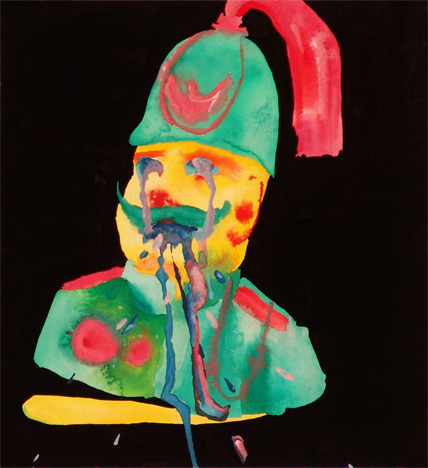
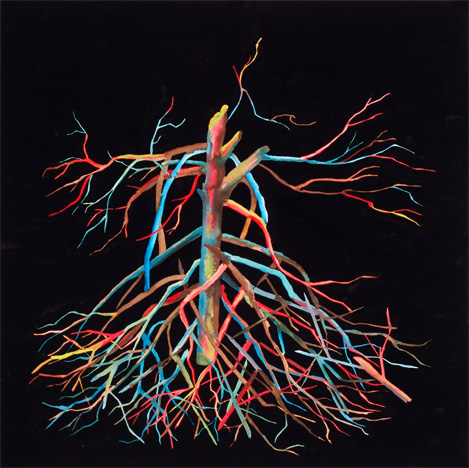
*
Corey Corcoran resides in Boston:


*
Finnish illustrator Rikka Sormunen:

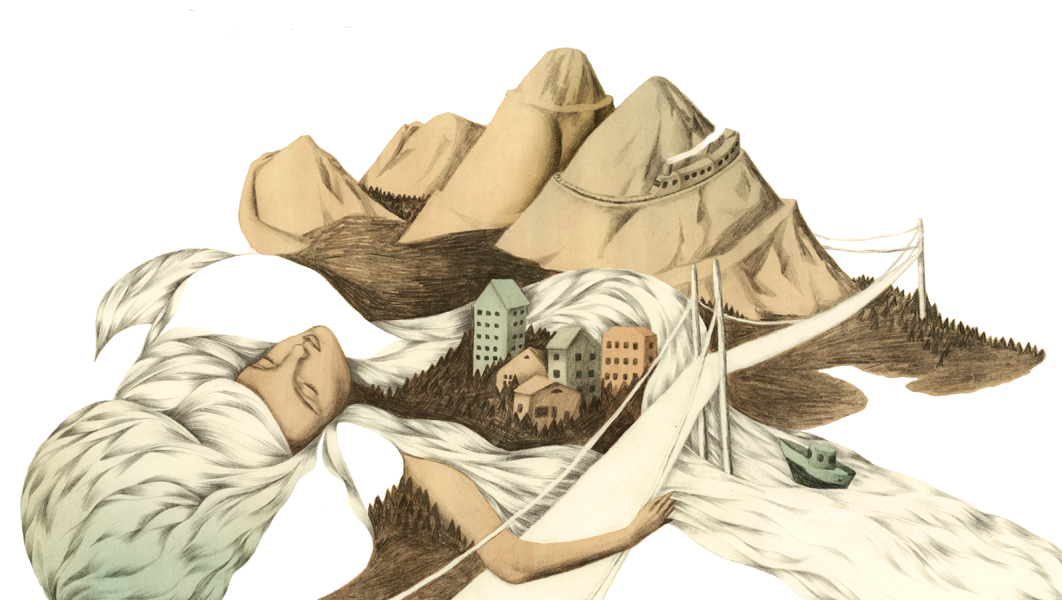
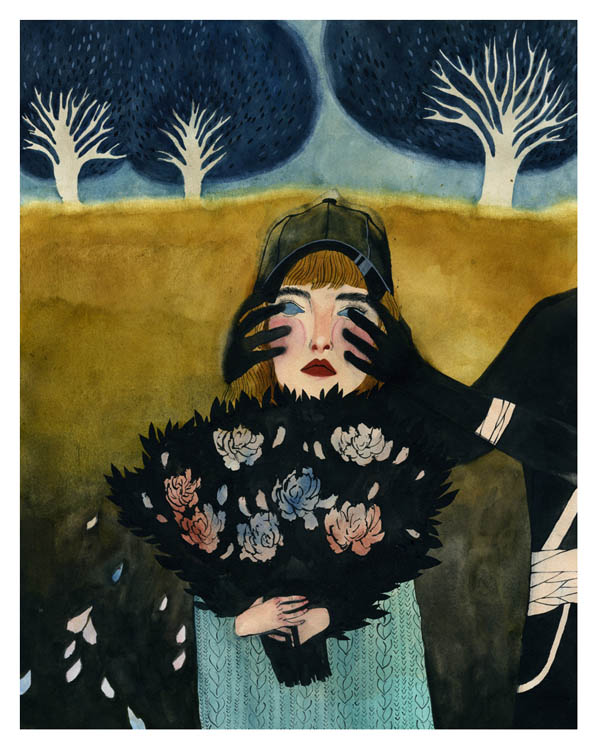
*
Syntaks - "Blue Sunshine"
directed by Jakob Skott
*
from Frederic Fontenoy's "Metamorphose" project:



*
The primary goal of translation is to recreate the effect of the original poem in the target language (the language into which you are translating). The problem, of course, is that if the poet did her work properly in the original (or source) language, then she made use of every available trick and tactic, thus making the job of recreating the poem almost impossible. This is why Umberto Eco calls translation “the art of failure.”
THE ART OF FAILURE: POETRY IN TRANSLATION
by
Okla Elliott
*
"Chore Damaris"
directed by Justin Anderson
*
Canadian artist Brian Jungen:



*
Scottish artist Lola Dupré:



*
Emmanuel Malin resides in Paris:



*
Japanese artist Fumie Sasabuchi:


*
Robert and Kelly are sitting on a bench. Robert is hesitating. It is warm. Robert feels comfortable. He looks at Kelly and wants to kiss her. He thinks, “She is pretty great.” Robert feels sad. Robert wants to implode.
Eat When You Feel Sad
by
Zachary German
*
from Daniel Gordon's "Thin Skin" project:


*
*
California artist Jeffrey Decoster:



*
from Lisel Jane Ashlock's "Titles From Freud" series:



*
"We asked our the LWOT Panel: What's the worst thing someone has ever said about one of your artistic endeavors?"
J.A. Tyler
For me, it is more about what people don’t say. You mail them a book and never hear back. You shoot them a pdf of a manuscript and no comments are returned. You ask for blurb and silence prevails. You give modest-acclaim for a press or a new novel or a publication, and no words are said back. This to me is the greatest form of devious, devilish remark. To say nothing about a literary work is, to me, to say everything negative, all at once, in the loudest voice possible. To say nothing is to say that this is bad, beyond bad, so bad that nothing in fact can be said about it. We try to tell ourselves no, don’t worry about it, the email was dropped, the mail was lost, the conversation was forgotten. It wasn’t. No no. Their silence means they hated it, they loathed it, they were disgusted by your words. Enjoy the silence is what I am saying, because it will ring in your ears forever.
*
Photography from Brian Henry's "Decay" project:



*
Architecture by Robert Harvey Oshatz:
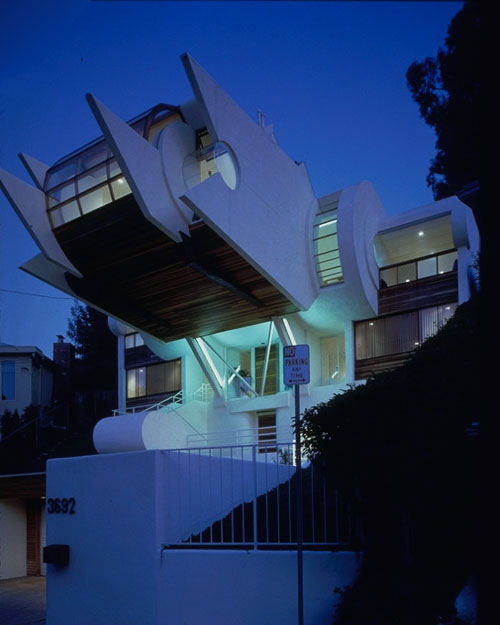

*
The first-ever film version of Lewis Carroll's Alice in Wonderland (1903)
directed by Cecil Hepworth and Percy Stow


*
Nick van Woert is from Reno, Nevada:



*
Ignore the dismissive title tag affixed by whoever uploaded the video. It's actually quite beautiful -- an unidentified Eastern European man playing a hurdy-gurdy:
*
Massachusetts-based artist Daniel Szymanowski:


*
Brian Willmont resides in Boston:


*
Corey Corcoran resides in Boston:


*
Finnish illustrator Rikka Sormunen:



*
Syntaks - "Blue Sunshine"
directed by Jakob Skott
*
from Frederic Fontenoy's "Metamorphose" project:



*
The primary goal of translation is to recreate the effect of the original poem in the target language (the language into which you are translating). The problem, of course, is that if the poet did her work properly in the original (or source) language, then she made use of every available trick and tactic, thus making the job of recreating the poem almost impossible. This is why Umberto Eco calls translation “the art of failure.”
THE ART OF FAILURE: POETRY IN TRANSLATION
by
Okla Elliott
*
"Chore Damaris"
directed by Justin Anderson
*
Canadian artist Brian Jungen:



*
Scottish artist Lola Dupré:



*
Emmanuel Malin resides in Paris:



*
Japanese artist Fumie Sasabuchi:


*
Robert and Kelly are sitting on a bench. Robert is hesitating. It is warm. Robert feels comfortable. He looks at Kelly and wants to kiss her. He thinks, “She is pretty great.” Robert feels sad. Robert wants to implode.
Eat When You Feel Sad
by
Zachary German
*
from Daniel Gordon's "Thin Skin" project:


*
*
California artist Jeffrey Decoster:



*
from Lisel Jane Ashlock's "Titles From Freud" series:



*
"We asked our the LWOT Panel: What's the worst thing someone has ever said about one of your artistic endeavors?"
J.A. Tyler
For me, it is more about what people don’t say. You mail them a book and never hear back. You shoot them a pdf of a manuscript and no comments are returned. You ask for blurb and silence prevails. You give modest-acclaim for a press or a new novel or a publication, and no words are said back. This to me is the greatest form of devious, devilish remark. To say nothing about a literary work is, to me, to say everything negative, all at once, in the loudest voice possible. To say nothing is to say that this is bad, beyond bad, so bad that nothing in fact can be said about it. We try to tell ourselves no, don’t worry about it, the email was dropped, the mail was lost, the conversation was forgotten. It wasn’t. No no. Their silence means they hated it, they loathed it, they were disgusted by your words. Enjoy the silence is what I am saying, because it will ring in your ears forever.
*
Photography from Brian Henry's "Decay" project:



*
Architecture by Robert Harvey Oshatz:


*
The first-ever film version of Lewis Carroll's Alice in Wonderland (1903)
directed by Cecil Hepworth and Percy Stow
